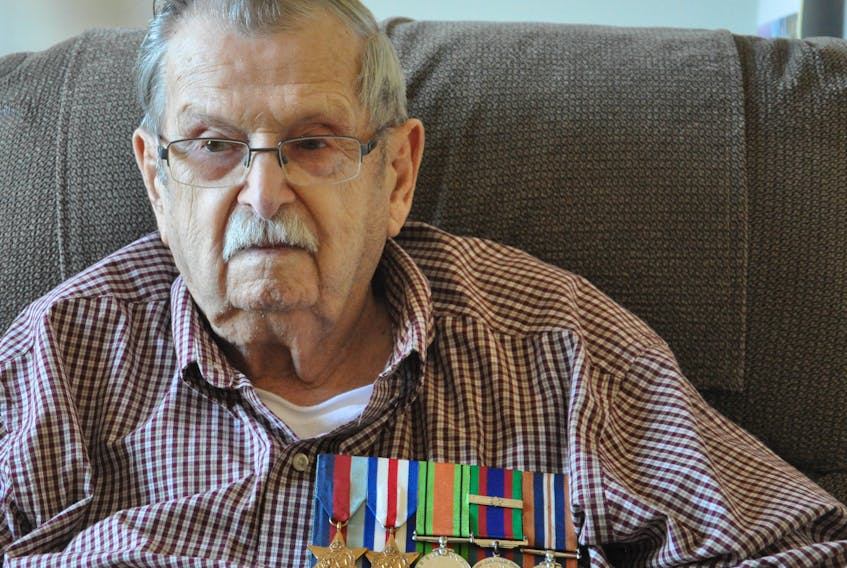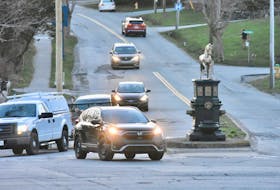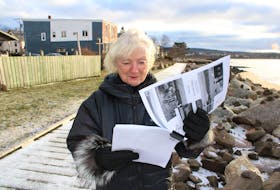When asked if his experience as an artillery gunner in the Allied forces in the Second World War was daunting, Clement “Clem” James Guthro, with a shrug said, “it was just my job. At first, it was a bit frightening.”
Although a long time has passed since the war, Guthro has specific, detailed memories of what he experienced.
Guthro, who grew up in New Glasgow, remembers a great deal of what his role in the war entailed, on the battlefield, noting that the artillery weapon he and the rest of his 10-man team operated, “was a fair-sized gun. It fired shells that were 100 pounds.
“You put the explosives in the chamber, and you put a couple of bags of gunpowder behind it – that would explode, and send the shell on its way.”
In preparation for his duty in Europe, Guthro trained at a base in Sorel, Que., and then Petawawa, Ont., before being shipped to England, to complete advanced training for operating artillery.
“When we left Canada and got to England, I realized what we were doing in Canada was child’s play, compared to what we were doing in England,” said Guthro.
“We learned the basics, how to shoot and march and stuff, when in Petawawa, but we got some real battle experience up in England,” where they were trained with actual live ammunition, to prepare them for the harrowing experience of war on continental Europe.
When his training was complete and he was deployed, Guthro recalls he was in Europe for 2 1/2 years. Guthro said he recalled landing on the beach in France – the first spot where he and his fellow troops were deployed – and going on to establish a foothold on the beach, pushing the enemy back several miles by the end of the first day.
“The first thing I thought when I was there was, ‘this is the real thing.’ It was the first time I was under fire from the enemy,” said Guthro. “Someone was really trying to kill you. Over in England, we didn’t need to worry about that.”
Unlike in World War I, when artillery units were at a distance from the fighting, Guthro recalls that his team was stationed very close to enemy lines.
“We were as up close as we could get. Not all the time – it depended on the terrain that you’re on. We used what cover there was, because you didn’t want to expose yourself to the enemy, if you could help it,” said Guthro, recalling the extreme danger his role entailed.
Guthro remembers the endless stream of enemy troops, “that just kept coming, and coming and coming,” on the beaches of France, and the relentless Allied push to get inland.
He recalls that during his service, it was a period where the Axis forces were exerting themselves on two fronts – in Western Europe, and against Russian forces in the east.
At the end of all the fighting, as the German forces were driven back, Guthro said it was “a great relief, and a great joy,” where he was serving in Berlin.
But the day Germany surrendered, that relief he felt was fleeting, because “the enemy in the area we were stationed didn’t get the message,” and kept firing at Guthro and his fellow soldiers, for the rest of that day.
“By evening, they got the message, and it stopped,” said Guthro, “and then all was quiet.”
When the fighting ceased, Guthro remembered the frustration he felt at staying in Europe for months after the war ended.
“It took so long for them to get us home. I got home before Christmas, but I was over on the continent and then England for months,” before he and his fellow Canadian troops were brought back on a vessel called the Queen Mary, one of the biggest ships in the world.
Having his fill of war, Guthro didn’t stay in the military, getting out as soon as he could.
“I made it home alive, and that was the main thing,” said Guthro.
After the war, Guthro’s work took him to Ontario, and eventually back to where he was from, New Glasgow, where he married his wife Evelyn, and had two kids – Clement and Marilyn, and worked at Scott Paper until he retired.
Looking back on his role in the Second World War, Guthro said he always felt that Remembrance Day was “just another day,” but admired the fact that so many people used the day to remember what he and his fellow veterans had seen.
“It’s good for a lot of veterans to get together, for people to have a parade and meal somewhere, to celebrate,” said Guthro.
Guthro emphasized the importance of remembering, by putting it into context with an experience he had after the Second World War: “I remember when my brother went to go to the Korean War, he tried his best to get me to go with him – but I went through one war without getting killed – and that was my contribution. I wasn’t doing that anymore.”









